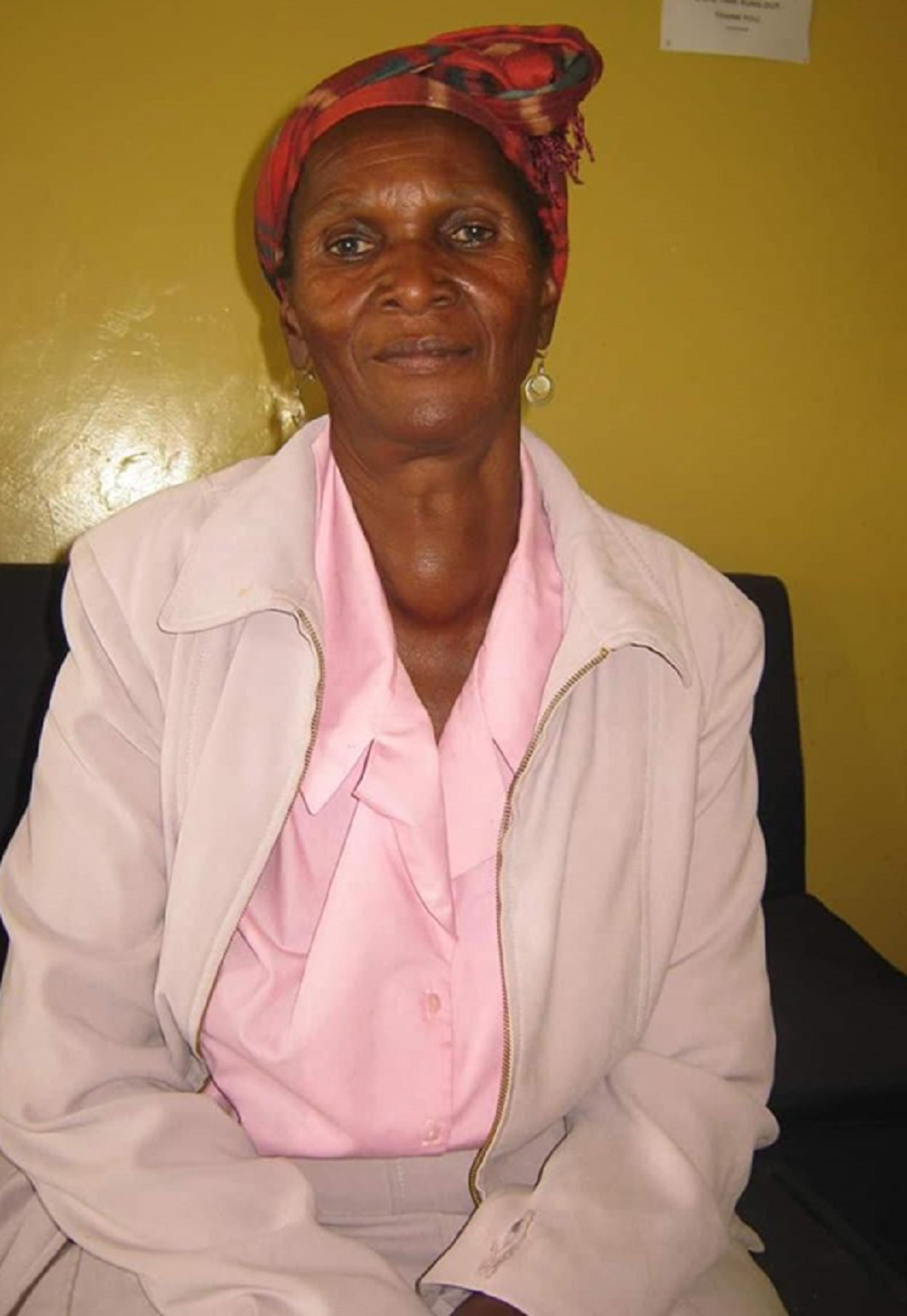
I live with my last born daughter and my four grandchildren. My daughter separated from her husband and came with her children to stay with me. I used to be a vendor when I was in good health but now because I’m sick, my children look after me.
How did you get involved in campaigning for older people’s rights?
In 2010, when my child took me to the United Kingdom for a visit, I met other older people who formed associations to air out their issues to decision makers. I also attended their meetings and I was inspired by their projects and the change they brought. In 2011, when I came back with the realisation that in Zimbabwe older people are being deprived from their rights, I formed an organisation called COPA.
Have you ever experienced discrimination because of your age?
I experienced discrimination in 2011 when I went to seek medical support at a local clinic. We were told to stand in a queue and the doctors would not attend to older people for no reason.
Also in 2011, I went to a post office to get the government’s allowance for older people. We were told to stand in long queues. After hours of standing, they told us to come back the following day. I was so hurt by this treatment.
Many older people face discrimination here in Chitungwiza. For example, when the Mayor donates food to the community, older people are often not prioritised. Distribution points and the way food is distributed leaves us out.
Older women also experience culturally acceptable gender discrimination. This results in many of them suffering from depression due to this form of emotional abuse.
Tell us about your proudest moments as a campaigner
My proudest moments are linked to Christmas parties. I was so happy and so proud when we would host a party as older people, share food and share our views about the problems we face.
We met a number of decision makers but they were not able to fulfill their promises because of the economic challenges in Zimbabwe.
As an association, we raised the red flag on high burial space costs. Now the local authority provides free burial space for older people.
What are you campaigning for right now, and how are you doing it?
We are campaigning for the removal and reduction of municipal service charges, for receiving social support from the government – and for universal free medical access for all people above 60 who can’t pay for these services.
What effect has campaigning had on you as an older person?
My own life has changed because I am now respected in the community. Despite that, I am ill and can’t walk without assistance. Social services engage me in activities they think that might be of help. Because of the work I have done in the past, I am now well known by the local authority managers and other public officials.
Because of campaigning, I am now empowered and I am not embarrassed to advocate for older people anywhere. I once advocated for an older person in a bus on her journey to rural areas as he had to stand because he had paid half the fare. When I was fit and in good health, I would go to different banks, hospitals and other places to advocate for the rights of older people not to stand in queues.
How are things improving for older people in your country?
In Zimbabwe nothing has changed except the issue of free burial for older people in Chitungwiza.
Older people are not being treated fairly. We built this nation but we are not recognised. We are regarded as a burden and our needs are not being met. For example, we don’t have access to loans because of our age.
What needs to be done to improve the situation further?
The government needs to engage with older people and fulfill their needs. There must be allowances for older people, free medical services, free drugs, litigation advice for rents.
Older people must not be forced to attend political parties’ rallies unless they wish to.
Do you have a message for other older people around the world?
Not to be weary or bereaved but to keep on pushing till their voices are heard
And finally, what would your perfect world look like?
A world where older people are taken care of by the government, where our contributions to society are recognised. A world where older people are treated with respect. A world where the government hosts Christmas parties for older people!
With thanks to HelpAge global network member Center for Community Development Solutions.
Read more stories from older campaigners.
